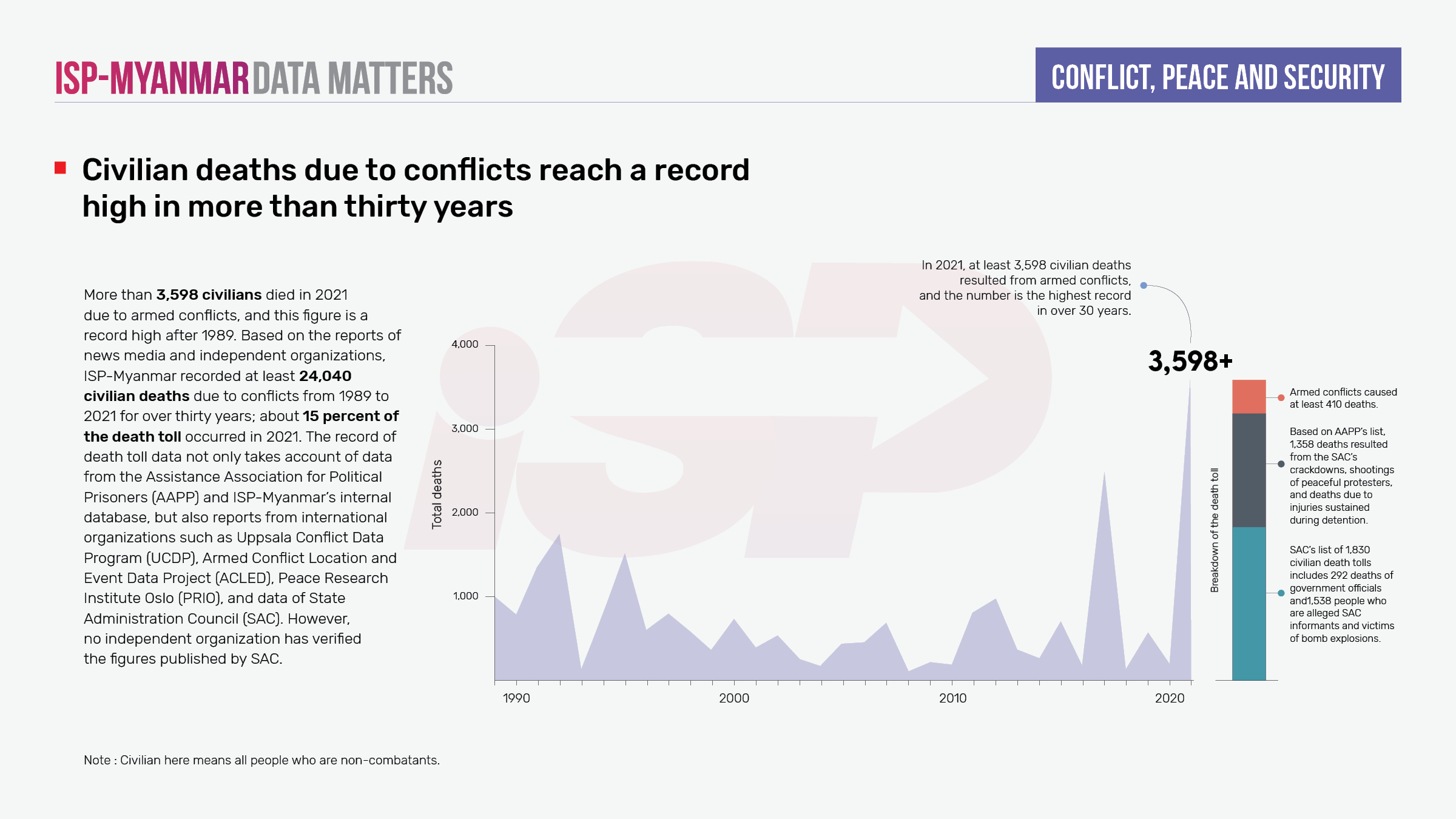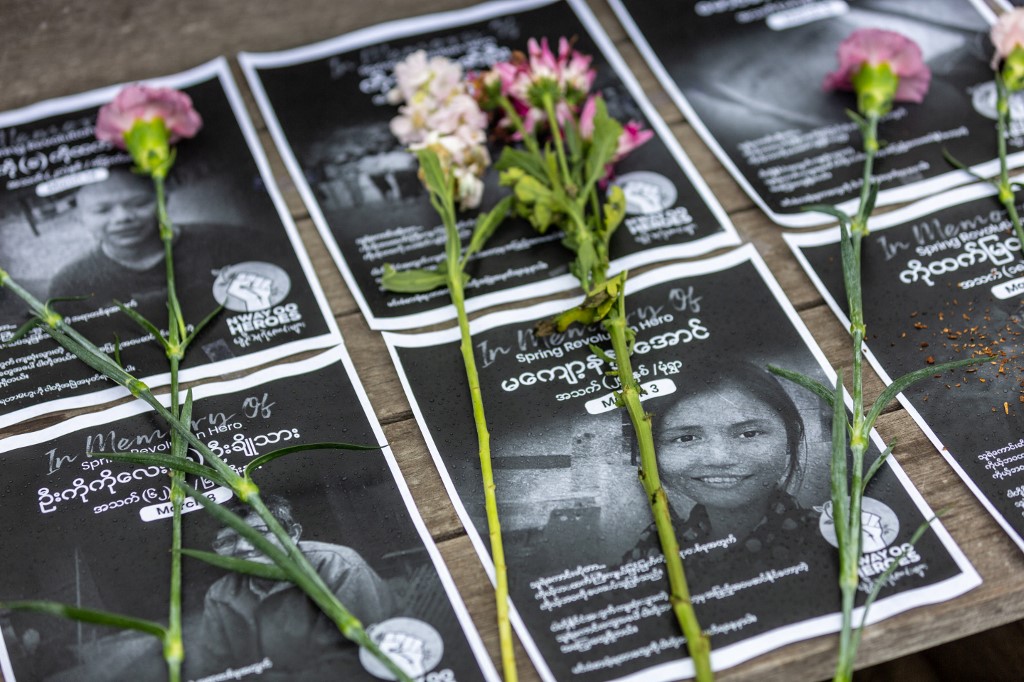Data Matters No. 2
(This article is a translation of the Burmese language version that ISP-Myanmar posted on its Facebook page on January 28, 2022).

In 2021, there were at least 3,598 deaths caused by the political and military conflict in Myanmar following the military coup, the highest on record in over 30 years since 1989. According to data compiled by ISP-Myanmar based on publications by media and independent organizations, at least 24,040 civilians have died from 1989 to 2021, with 15 percent of this death toll occurring in 2021 alone.
In compiling data on civilian deaths (only non-combatants) in 2021, in addition to records provided by the Assistance Association for Political Prisoners (AAPP), and data compiled by ISP-Myanmar, other data sources were taken into account including those published by international organizations such as Uppsala Conflict Data Program (UCDP), Armed Conflict Location and Event Data Project (ACLED), and Peace Research Institute Oslo (PRIO) as well as numbers mentioned in State Administration Council (SAC) announcements. SAC data classifies suspected SAC informants killed, victims of bomb explosions, government officials and party members killed, and similar categories. We need to be cautious that the data published by the SAC is not confirmed by any independent organizations. The SAC has also rejected the veracity of data published by the AAPP. The data released by the AAPP includes deaths from injuries caused during both shootings and arrests by the SAC as well as deaths during interrogation.
∎ Why does it matter?
By looking at conflicts and clashes, the number of civilians who were killed and wounded in those conflicts and clashes, how they were killed and wounded, as well as the number of people displaced, it is possible to examine whether or not armed forces have committed human rights violations from the perspective of transitional justice, and also to conduct research on human security issues.
∎ Other relevant readings
On-the-ground reports from ethnic news organizations and other independent media groups provide regular updates about conflict situations, their impact, and the collateral damage in the aftermath of the military coup. These include reports of renewed fighting in ethnic areas, civilian fatalities, and rising refugee and IDP issues on the ground. In addition, records and reports by United Nations organizations such as the United Nations Office for the Coordination of Humanitarian Affairs (UNOCHA), and other independent local and foreign organizations also provide information about the ongoing conflict situation in Myanmar.

